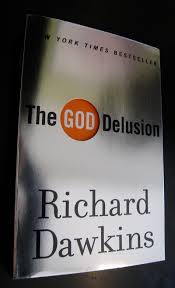1. We are all oppressed.
Richie Dawkins has made a name for himself, but so far it’s not in valid reasoning per se. Distinguished philosophers shake their heads at his poplar “The God Delusion,” which contributes nothing to the Philosophy of Religion, the question of God, and seems to be unaware of the last 50 years or so of philosophy on the subject.
But, I’ll get to that later, today is about his first chapters.
His early chapters only prove the hypothesis I’ve wondered on before: everyone thinks of themselves as oppressed.
Growing up in a number of different groups, I saw how each group saw themselves as oppressed. When I became a christian, all we saw was how the large atheistic liberal agenda machine was slamming us around and oppressing our rights and our faith. Dawkins sees the tables as turned, and begs us to hear his weak cries through a large and horribly powerful Religious Agenda Machine that threatens the sane existence of intellectuals like himself.
If I hadn’t grown up as I did, I might be inclined to believe him.
Who is right - The oppressed atheists (who DO have to put up with a LOT), or the oppressed Christians (who DO have to put up with a LOT) ?
Sadly, religion does have that military-driven Islam on its side, which somehow finds men is suits to continue to appear on TV and claim it as a religion of peace - as if one man on TV (who is obviously quite westernized) counts more than the thousands holding signs threatening the murder of the entire western world; in downtown London even.
SideNote: Islam lived at peace with Christianity in many countries for many years... as long as they were in charge. But the point is that Christians were once quite safe within the borders of Istanbul, and today they are not.
Dawkins builds a series of Straw-men for his argument on God, beginning by attempting to paint his opponents as dangerous powerful idiots who must be stopped. The first stage is to set-up a situation where atheists, or those closet-creatures who are afraid to admit their doubt, are under the looming thumb of irrational religionists.
It’s always good to be the underdog.
Atheists claim Religious people are privileged, and Religious people claim that the atheists are privileged.
Faith is a blinding, dangerous thing, I think. Whether you believe in God or your belief is that there is no God, and no meaning to life.
Either way you are likely to see yourself as oppressed. It’s part of our Post-Modern era.
One of our key Post-Modern themes is that of suspicion, whether Gays are suspicious of being unjustly treated, or Women (look at the feminist Interpretations of the Bible), or the Atheists, or the Religious Right, or Blacks, or Middle-aged White Men, or Asian Women, or Mexican illegals, all Immigrants, the Rich, the Poor, all you need to do is to name a group and they all can read the same copy of Time magazine and find that their particular group or enclave is being maligned (they can all read the Bible the same way). We are all quite suspicious... not just the feminists who see marriage as a way of man dominating women and imposing ‘traditional’ gender roles.
So... Who is right? Who is really oppressed?
Maybe we all are... ...and in our fear of being oppressed, become oppressors.
